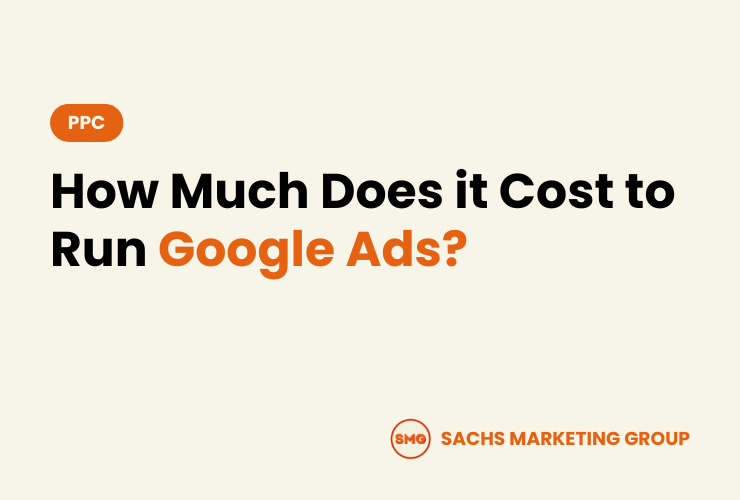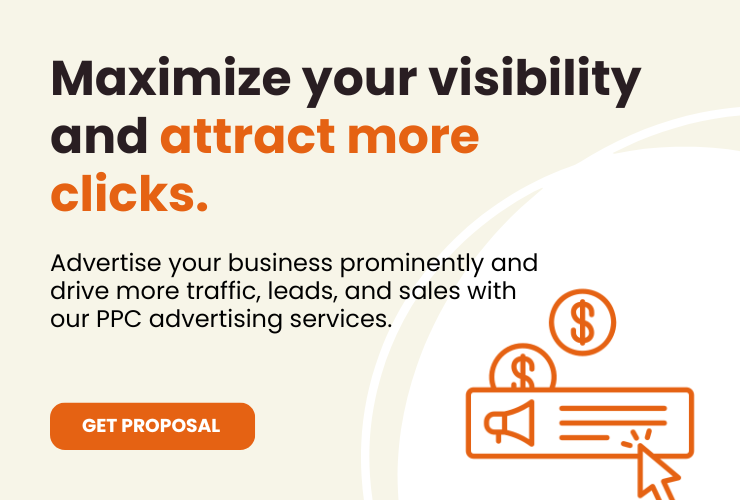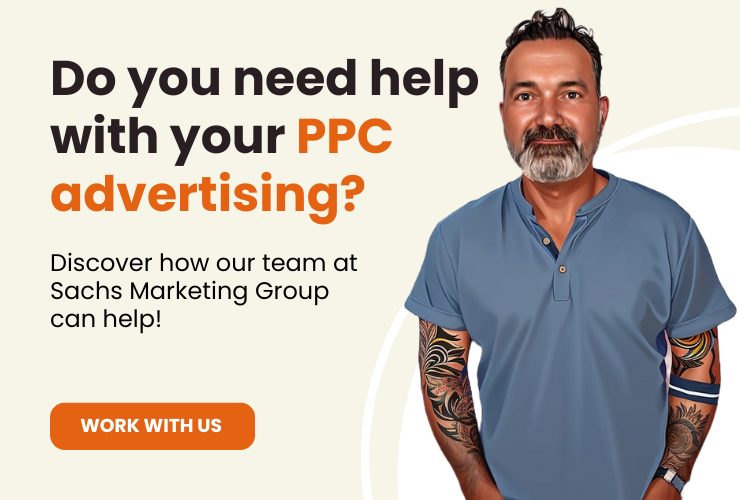The cost of running Google Ads can vary greatly, with businesses spending anywhere from a few dollars per day to thousands per month. Your industry, chosen keywords, and competition level heavily influence this cost. Establishing a clear budget aligned with your marketing goals is essential for a cost-effective campaign.
How much does it cost to run Google Ads for a small business? What are the potential benefits of running Google PPC advertising against the cost? Understanding the financial commitment required for effective campaigns can be daunting.
In this article, we explore one of the most common questions we hear: how much does it cost to run Google Ads?
Running ads involves a lot of variables that ultimately impact the cost of running Google Ads. However, we’re here to explore some of the factors so you’re equipped with knowledge to make strategic decisions – because knowledge of cost is paramount before delving into the digital marketing arena.
Overview
How Much Does it Cost to Run Google Ads?
The costs associated with running Google Ads can widely vary, deeply influenced by factors such as your industry, the competitiveness of keywords, and the targeting settings you choose.
Generally, small to mid-sized businesses may spend between $9,000 and $10,000 per month on Google Ads, which translates to around $300 to $333 per day. However, this is not a cap or a floor. Some businesses might find themselves spending $50 per month, while others might be pouring in $500,000 monthly, each finding success in their respective investments.
For example, a local bakery aiming to attract nearby customers might only spend $5 a day on geo-targeted ads for “fresh pastry delivery,” whereas a national electronics retailer could spend $2,000 a day targeting “buy laptops online” due to higher competition and a broader target market.
Establishing A Monthly Budget for Google Ads
When establishing a monthly budget for Google Ads, start by defining your marketing objectives and assessing your average sales cycle and customer value.
A practical approach is to consider the lifetime value of a customer and work backward to determine what you’re willing to spend to acquire a single customer. This means if the lifetime value of a customer is $500 and you’re willing to spend 10% ($50) to acquire them, and your conversion rate is 2%, you’d need to spend $1,000 to acquire 20 customers that month.
For instance, an online clothing retailer might set a monthly budget of $10,000, based on an analysis showing that this budget level can potentially bring in 200 customers with a lifetime value of $200 each, resulting in a significant ROI.
Setting A Daily Budget for Google Ads
Your daily budget is the average amount you’re willing to spend on Google Ads each day over a month. This budget should be aligned with your monthly spending limit but also flexible enough to accommodate days when your ads may receive more clicks and conversions. For example, if your monthly budget is $3,000, your average daily budget would be about $100. However, if weekends bring in more business, you might allocate $150 per day on Saturdays and Sundays and reduce weekday spending to $85.
For instance, a local service provider like a plumber might find that weekdays bring higher traffic as people are more likely to book services. Therefore, they might set a daily budget of $50 on weekdays and $20 on weekends, adjusting as data on ad performance is gathered.
Factors Influencing Your Google Ads Cost
Google Ads operates on a pay-per-click (PPC) model, where various elements determine the overall cost of your campaigns. Key factors include:
- Keyword Competition: Highly sought-after keywords drive up cost per click (CPC). For example, legal and insurance industries often have the highest CPCs due to intense competition.
- Quality Score: This metric reflects the relevance and quality of your ads, keywords, and landing pages. A higher Quality Score can lead to lower costs and better ad positions.
- Ad Format and Extensions: Utilizing additional features like site link extensions or callouts can impact your click-through rates (CTR) and, subsequently, your costs.
- Targeting Settings: Geographical targeting, device targeting, and ad scheduling also affect costs. Narrow, highly targeted campaigns might have a higher CPC but can lead to more qualified leads.
- Bidding Strategy: Whether you choose automated or manual bidding, your strategy will impact how much you pay for each click or conversion.
For example, a startup tech company might bid on broad terms like “best CRM software,” facing stiff competition from established players, resulting in a higher CPC. In contrast, if they target long-tail keywords such as “CRM software for small businesses in California,” they might enjoy lower competition and a more cost-effective CPC.
Maximizing Your Google Ads Investment
According to Demandage, 80% of global businesses use Google Ads for their PPC campaigns. The key to maximizing your Google Ads investment lies in strategic refinement and optimization of campaigns.
It’s a delicate balancing act of spending and saving where every dollar should work towards achieving higher returns. To optimize your investment, you must delve deep into campaign analytics, adjust bids, and refine your target audiences to ensure that your ads reach the most promising prospects. We’ve shared 16 PPC advertising tips for small businesses before, so we’ll provide a quick overview below.
Rather than spreading your budget thinly across too many keywords, concentrate your investment on those that convert at a higher rate. Regularly pruning underperforming keywords and ads will help you allocate more budget to those that generate substantial leads and sales.
It’s also essential to capitalize on ad extensions and other Google Ads features that enhance your ad visibility and improve your click-through rates, directly impacting your ad rank positively.
Employing A/B testing for your ad copy and landing pages allows you to single out the most effective elements that resonate with your audience. This continuous process of testing and optimization helps in progressively refining your ads to better match user intent, thereby improving quality scores and reducing the cost per conversion.
The end goal is to create a self-sustaining cycle where your investment consistently yields a high return, with campaigns that are both scalable and repeatable.
How A Google Ads Specialist Can Help
A Google Ads specialist is your guide through the intricacies of PPC advertising, ensuring that your investment is not just a shot in the dark but a calculated strategy designed for success. These professionals live and breathe data, with a keen eye for trends and patterns that could mean the difference between an ad that performs moderately and one that excels.
Their expertise in keyword research transcends basic practices, finding niche terms and crafting ad groups that are highly relevant and less costly. They also bring creative insights to the table, drafting ad copy that stands out and compels users to click through. Moreover, a specialist has the acumen to interpret complex analytics, turning numbers into narratives that tell you precisely what’s working and what isn’t.
On top of that, they are always on the pulse of new features and changes within the Google Ads platform. They can quickly adapt your strategy, ensuring your campaigns are always ahead of the curve. They also can automate and streamline various processes within your campaigns, freeing up your time to focus on other critical aspects of your business.
In short, a Google Ads specialist not only helps you get off the ground but also continuously pushes your campaigns to new heights, fine-tuning your approach to align with both your short-term and long-term business objectives. With their help, you can expect a more focused strategy that leverages every penny of your ad spend, converting it into tangible results.
FAQs
We hear a lot of questions relating to Google Ads, so we thought it would be helpful to share some of the most frequently asked questions along with some answers.
Is $500 enough for Google Ads?
A $500 budget can be a good start for small businesses venturing into Google Ads. It allows for a focused niche campaign targeting specific keywords or a local geographic area. However, competitive industries may require higher budgets for significant impact. It’s essential to monitor and optimize ads to maximize PPC ROI within this budget.
Is it Worth Paying for Google Ads?
Investing in Google Ads is often worthwhile due to its vast reach and targeting capabilities, which can lead to high conversion rates. It provides immediate visibility and quantifiable results, making it a versatile tool for businesses seeking to increase their online presence and drive targeted traffic to their website.
What is a Realistic Budget for Google Ads?
A realistic budget for Google Ads varies greatly depending on industry, competition, and campaign goals. For small to medium businesses, a monthly budget ranging from $1,000 to $10,000 can be effective. It’s crucial to define clear objectives and adjust spending based on performance data and desired outcomes to maintain cost-effectiveness.
How Much Should You Budget Per Day?
Determining a daily budget for Google Ads hinges on your marketing goals and the average cost-per-click (CPC) in your industry. A small business might allocate $10 to $50 daily, allowing for enough clicks to analyze ad performance while maintaining cost control. This approach facilitates gradual scaling based on which keywords and ads yield the best return on investment.
What is A Good Budget for Google Ads?
Establishing a good budget for Google Ads requires balancing ambition with realism. While larger businesses might comfortably invest thousands monthly, small to mid-sized businesses might find $500 to $5,000 per month sustainable. A good budget aligns with your company’s financial constraints, yet is sufficient to outbid competitors for visibility and conversion opportunities.
Do Google Ads Work for Small Business?
Google Ads can be a game-changer for small businesses, offering them a level playing field with larger companies. With the right strategy, small businesses can achieve high visibility for targeted keywords, even on a modest budget. Success hinges on carefully selected keywords, well-crafted ads, and diligent monitoring to ensure ads reach potential customers without overspending.
Need Help Running Google Ads?
Are you seeking to maximize the impact of your Google Ads spend? At Sachs Marketing Group, we understand the intricacies of PPC management.
As a full-service digital marketing agency in Los Angeles and Westlake Village offering expert PPC advertising management services, we can optimize your campaigns for the highest returns.
Contact us today and discover how we can help your business grow through PPC advertising.
Conclusion
The cost of running Google Ads is a customizable element of your marketing strategy, influenced by various factors that can be optimized for better performance. With strategic planning and expert help, you can ensure that your Google Ads investment yields profitable returns.
Contact us today to get the conversation started!












